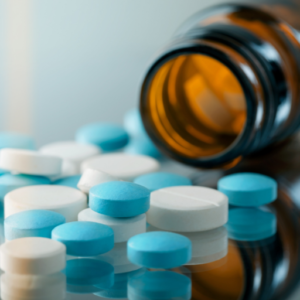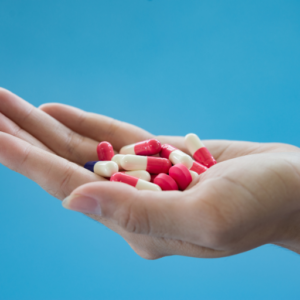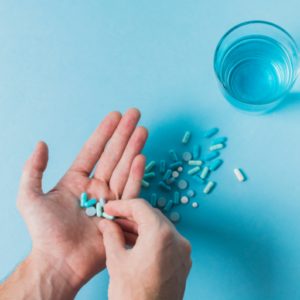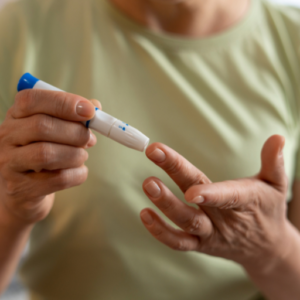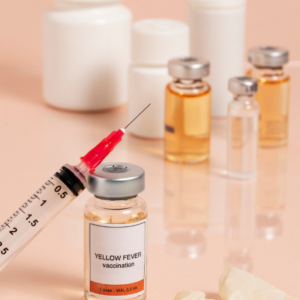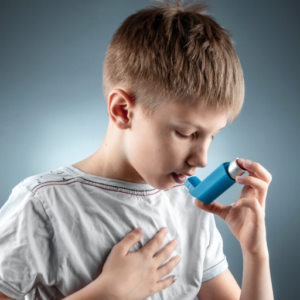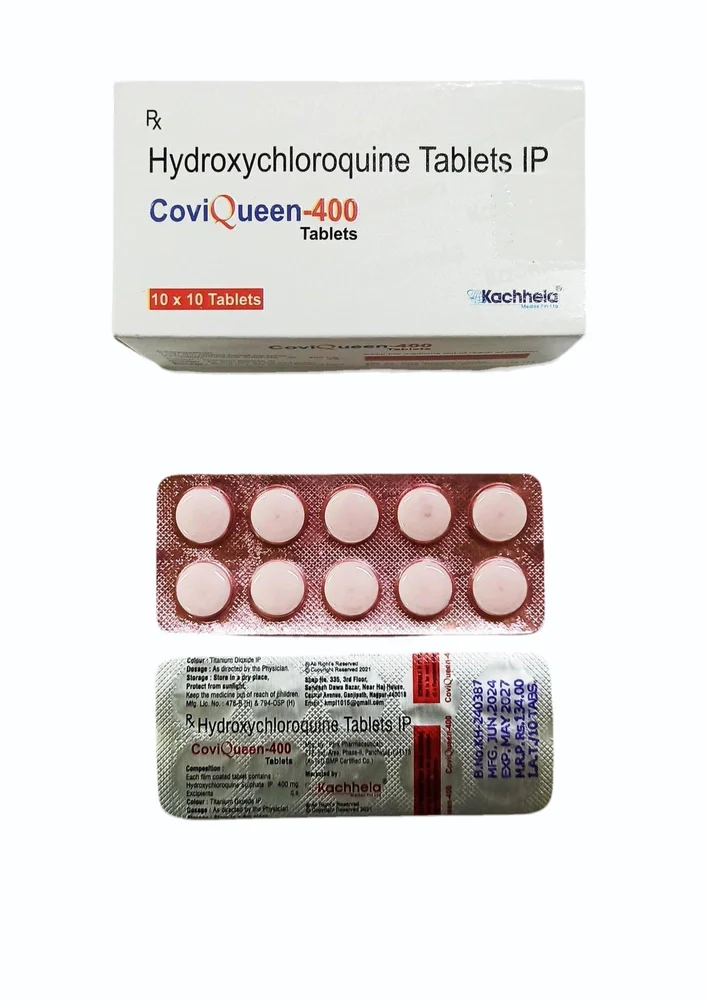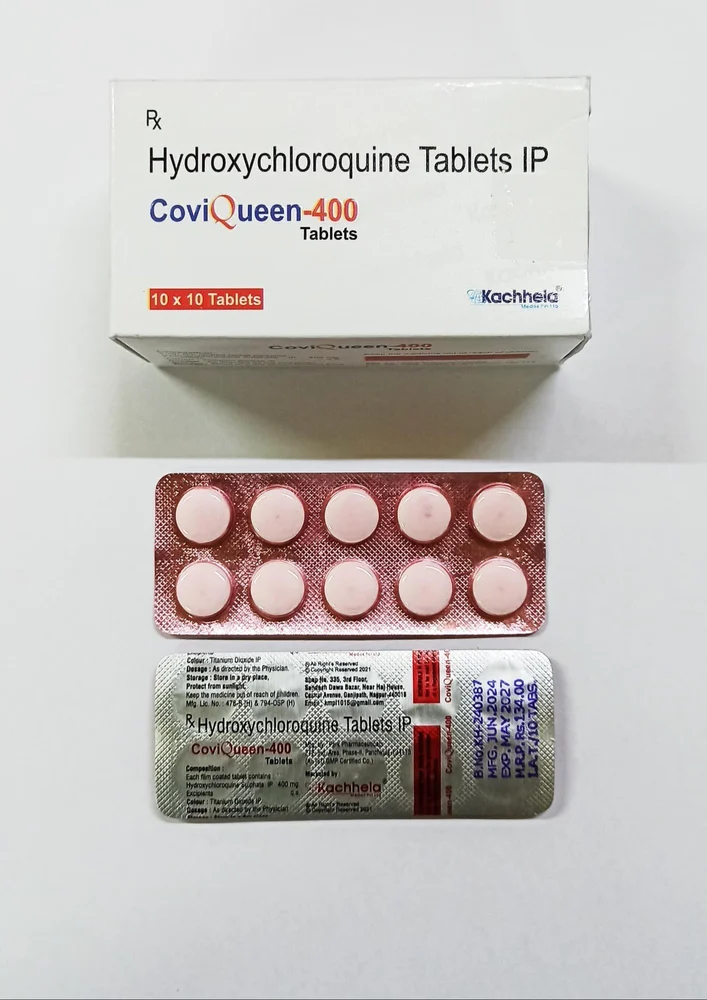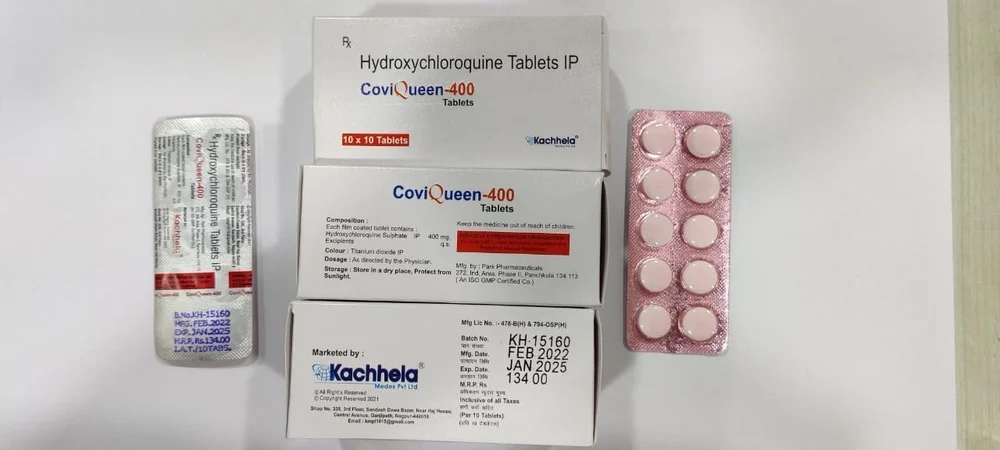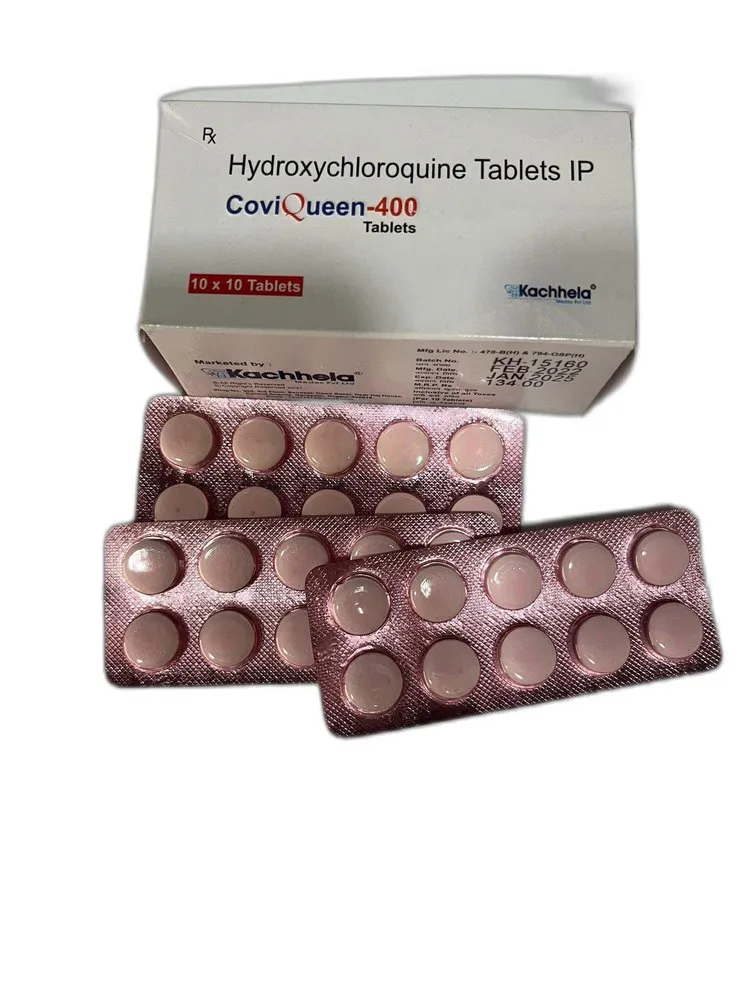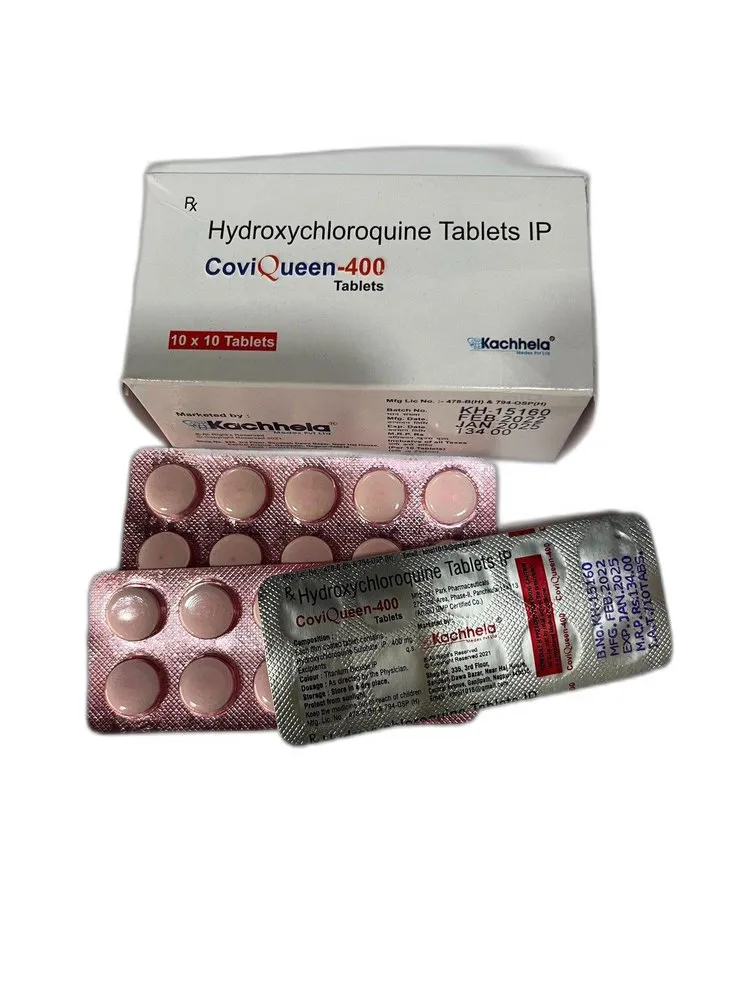COVIQUEEN 400mg
| Package | Per tablet | Savings | Price |
|---|---|---|---|
| 180 tablets | $0.35 | $21.42 | $84.42 $63 |
| 150 tablets | $0.36 | $16.35 | $70.35 $54 |
| 120 tablets | $0.37 | $12.28 | $56.28 $44 |
| 90 tablets | $0.39 | $7.21 | $42.21 $35 |
| 60 tablets | $0.42 | $3.14 | $28.14 $25 |
| 30 tablets | $0.5 | – | $14.07 |
What is this medicine?
COVIQUEEN 400 mg Tablets contain Hydroxychloroquine Sulphate, an antimalarial and immunomodulatory agent. This medicine is used to prevent and treat malaria. It is also used to manage autoimmune conditions such as rheumatoid arthritis and systemic lupus erythematosus (SLE). It works by reducing inflammation and modifying the immune response. Though previously studied for COVID-19, it is not routinely recommended for COVID-19 prevention or treatment.
What should I tell my health care provider before I take this medicine?
They need to know if you have any of these conditions:
-
eye or vision problems, especially retinal or macular disorders
-
heart disease or a history of irregular heartbeat (e.g., QT prolongation)
-
diabetes (risk of low blood sugar)
-
kidney or liver disease
-
muscle weakness or neuromuscular disorders
-
history of epilepsy or seizures
-
psoriasis or skin conditions
-
blood disorders (e.g., G6PD deficiency)
-
alcohol use
-
an unusual or allergic reaction to hydroxychloroquine, chloroquine, quinine, or other medications, foods, dyes, or preservatives
-
pregnant or trying to get pregnant
-
breast-feeding
How should I use this medicine?
Take this medicine by mouth with a full glass of water. Take with food or milk to avoid stomach upset. Take your doses at regular intervals. Do not take your medicine more often than directed. Do not stop taking this medicine without consulting your doctor or healthcare professional.
Overdosage: If you think you have taken too much of this medicine, contact a poison control center or emergency room at once. Overdose can be dangerous, especially in children.
NOTE: This medicine is only for you. Do not share this medicine with others.
What if I miss a dose?
If you miss a dose, take it as soon as you can. If it is almost time for your next dose, take only that dose. Do not take double or extra doses.
What may interact with this medicine?
-
medicines that affect heart rhythm (e.g., amiodarone, sotalol, azithromycin)
-
antacids (take them at least 4 hours apart)
-
diabetes medications (risk of hypoglycemia)
-
digoxin
-
tamoxifen
-
cyclosporine
-
other antimalarial drugs
-
seizure medications
-
medicines that lower potassium or magnesium levels
-
alcohol
This list may not describe all possible interactions. Give your health care provider a list of all the medicines, herbs, non-prescription drugs, or dietary supplements you use. Also tell them if you smoke, drink alcohol, or use illegal drugs. Some items may interact with your medicine.
What should I watch for while using this medicine?
-
Visit your doctor or health care professional regularly for checkups and eye exams.
-
This medicine can cause retinal damage with long-term use. Report any visual changes immediately.
-
Monitor for signs of low blood sugar, especially if diabetic (e.g., dizziness, sweating, confusion).
-
Let your doctor know if you develop muscle weakness, irregular heartbeat, or ringing in the ears.
-
Use sunscreen and protective clothing — hydroxychloroquine can increase your sensitivity to sunlight.
-
Avoid alcohol to reduce the risk of liver problems.
-
If you become pregnant or plan to become pregnant, inform your doctor. Use during pregnancy should be carefully monitored.
-
This medicine may cause drowsiness or dizziness. Do not drive or operate machinery until you know how it affects you.
-
Inform your healthcare provider if you have a severe infection, fever, or develop rash or other allergic symptoms.
What side effects may I notice from this medicine?
Side effects that you should report to your doctor or health care professional as soon as possible:
-
allergic reactions (rash, itching, swelling of the face/lips/tongue/throat)
-
vision changes or blurred vision
-
irregular heartbeat or chest pain
-
muscle weakness
-
hearing loss or ringing in the ears
-
severe skin rash or peeling
-
seizures
-
signs of low blood sugar (confusion, sweating, shakiness)
Side effects that usually do not require medical attention (report to your doctor or health care professional if they continue or are bothersome):
-
nausea or vomiting
-
loss of appetite
-
stomach pain or diarrhea
-
headache
-
dizziness
-
skin rash or itching
This list may not describe all possible side effects.
Where should I keep my medicine?
-
Keep out of the reach of children.
-
Store at room temperature between 20 and 25 degrees C (68 and 77 degrees F).
-
Protect from moisture and light.
-
Throw away any unused medicine after the expiration date.




